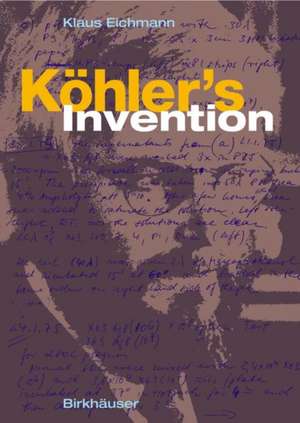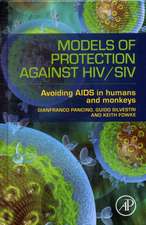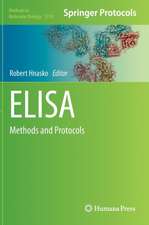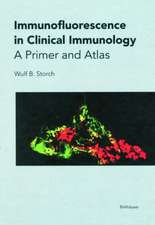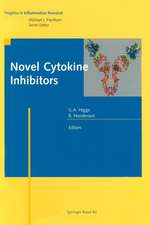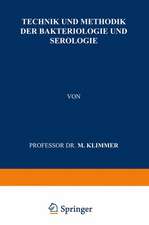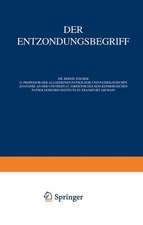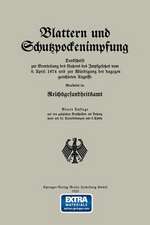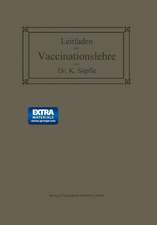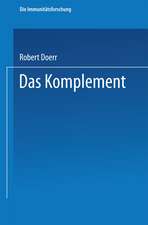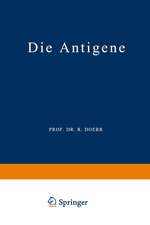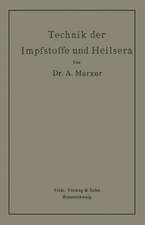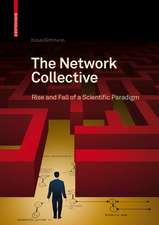Köhler's Invention
Autor Klaus Eichmannen Limba Engleză Hardback – 19 iul 2005
This scientific biography commemorates the 10th anniversary of Köhler's untimely death. Köhler's scientific achievements are explained in a way to make them understandable for the general public and discussed in the historical context of immunological research.
Preț: 720.68 lei
Preț vechi: 758.60 lei
-5% Nou
Puncte Express: 1081
Preț estimativ în valută:
137.90€ • 144.35$ • 114.78£
137.90€ • 144.35$ • 114.78£
Carte tipărită la comandă
Livrare economică 31 martie-14 aprilie
Preluare comenzi: 021 569.72.76
Specificații
ISBN-13: 9783764371739
ISBN-10: 3764371730
Pagini: 198
Ilustrații: VI, 223 p.
Dimensiuni: 155 x 235 x 24 mm
Greutate: 0.54 kg
Ediția:2005
Editura: Birkhäuser Basel
Colecția Birkhäuser
Locul publicării:Basel, Switzerland
ISBN-10: 3764371730
Pagini: 198
Ilustrații: VI, 223 p.
Dimensiuni: 155 x 235 x 24 mm
Greutate: 0.54 kg
Ediția:2005
Editura: Birkhäuser Basel
Colecția Birkhäuser
Locul publicării:Basel, Switzerland
Public țintă
ResearchCuprins
The time before.- A short history of the antibody problem.- The immunological scene around Köhler.- Köhler’s entry into science.- The quest for monoclonal antibodies.- Cell fusion.- Köhler in Cambridge.- Back in Basel.- The patent disaster.- The time after.- The Max-Planck-Institute of Immunobiology.- Getting Köhler to Freiburg.- “Köhler’s Max-Planck-Institute”.- Human relations.- Post-Nobel science I.- Post-Nobel science II.- Köhler’s death.- Magic bullet.- The antibody problem today — not quite solved.
Recenzii
Die Biographie wirkt ehrlich. (…) Kein Genie erscheint da, sondern ein intelligenter, eigenwilliger und fauler Forscher, der zur rechten Zeit am rechten Ort in der rechten Gruppe war. (…) Eichmanns Biographie ist eine der besten, die ich je gelesen habe. (Laborjournal)
Diese englischsprachige Biographie stellt seine wissenschaftlichen Leistungen für eine breite Öffentlichkeit verständlich dar und diskutiert sie im historischen Kontext der immunologischen Grundlagenforschung.
(Transkript)
Diese englischsprachige Biographie stellt seine wissenschaftlichen Leistungen für eine breite Öffentlichkeit verständlich dar und diskutiert sie im historischen Kontext der immunologischen Grundlagenforschung.
(Transkript)
Textul de pe ultima copertă
Georges Köhler (1946-1995) was one of the most prominent German scientists of recent history. In 1984, at an age of 38, he received the Nobel Prize in Physiology or Medicine, together with N.K. Jerne and C. Milstein, for inventing the technique for generating monoclonal antibodies. This method and its subsequent applications had an enormous impact on basic research, medicine and the biotech industry.
In the same year, Köhler became one of the directors of the Max-Planck-Institute of Immunobiology in Freiburg; his unfortunate premature death in 1995 set an end to his extraordinary career. Prof. Klaus Eichmann, who had joined the institute as director in 1981, and had invited Köhler to become his codirector, is one of the people who were closest to Georges Köhler.
This scientific biography commemorates the 10th anniversary of Köhler's untimely death. It describes his scientific and personal biography, based on 10 years of close personal and professional relationship between Eichmann and Köhler, as well as interviews with many colleagues and friends, including his "Doktorvater" and mentor Fritz Melchers. Köhler's scientific achievements are explained in a way to make them understandable for the general public and discussed in the historical context of the immunological research at the time.
In the same year, Köhler became one of the directors of the Max-Planck-Institute of Immunobiology in Freiburg; his unfortunate premature death in 1995 set an end to his extraordinary career. Prof. Klaus Eichmann, who had joined the institute as director in 1981, and had invited Köhler to become his codirector, is one of the people who were closest to Georges Köhler.
This scientific biography commemorates the 10th anniversary of Köhler's untimely death. It describes his scientific and personal biography, based on 10 years of close personal and professional relationship between Eichmann and Köhler, as well as interviews with many colleagues and friends, including his "Doktorvater" and mentor Fritz Melchers. Köhler's scientific achievements are explained in a way to make them understandable for the general public and discussed in the historical context of the immunological research at the time.
Caracteristici
Describes the discovery of a pivotal technology Vivid portrayal of a Nobel Prize Winner Tribute to an outstanding figure in immunological research Important contribution to the history of immunology
